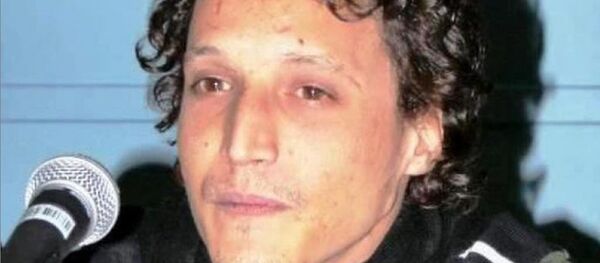Dr Eugenio Raúl Zaffaroni, vice-president of the International Association of Penal Law and judge at the Inter-American Court of Human Rights, discussed the ongoing situation with the seven Bolivian officials trapped at the Mexican Embassy.
Dr Zaffaroni is a former judge of the Supreme Court of Argentina and the Executive Secretary of the Latin American Association of Criminal Law and Criminology who also received the prestigious Stockolm Prize of Criminology in 2009.
He was reached via the Bartolina Sisa Resistance, a London-based grassroots solidarity movement representing indigenous women with strong links in Latin America.
Sputnik: Can you explain the current situation in Bolivia and the seven cabinet members of President Evo Morales' administration stranded at the Mexican embassy in La Paz? Why have they taken refuge there and what circumstances do they currently face?
Dr Eugenio Raúl Zaffaroni: Seven months ago, on November 10 and several days afterwards, these officials of the Evo Morales government sought diplomatic asylum from Mexico because their lives were in danger.
There were cases in which their homes were invaded and set on fire, armed civilian gangs roamed the streets and the regime's interior minister [Arturo Murillo] publicly said that they would be "hunted".
Also, family members of the officials are being harassed and the embassy has been surrounded by police cars and armed civilian groups.
Sputnik: What role do you hope to play in facilitating the Seven's safe passage to Mexico? How is their asylum guaranteed under international law and why is it a crime for the Jeanine Anez coup government to deny them safety?
Dr Eugenio Raúl Zaffaroni: In these cases, the government of the territory must grant safe passage and guarantee their arrival at the airport and boarding. None of this has happened, not even on humanitarian grounds with regard to one of the asylum seekers who has a young girl with a brain disorder in Buenos Aires.
This is an open violation of the right to asylum, guaranteed by the American Convention on Human Rights and, ultimately, by customary international law, especially in our region. The violations or lack of knowledge of these rights in our history took place under dictatorships, as was the case of Haya de la Torre in Peru or Héctor Cámpora in Argentina.
— Bartolina Sisa Resistance (@BartolinaLives) June 20, 2020
No democratic government has ever disregarded this right, which makes for what is called jus gentium, that is, basic international law. I believe that Bolivia, at this time, not only has a government of force, but that it is a true state of non-law, with which these violations of have gone completely outside the limits of international law.
Sputnik: How can the Inter-American Court of Human Rights (IACHR) play a role in guaranteeing amnesty for the Seven? Have they released any official statements or worked with other organisations to secure their freedom?
Dr Eugenio Raúl Zaffaroni: I do not operate in the inter-American system, but I know that another colleague working there and at the moment, all the historic human rights organizations of Argentina have denounced this situation at the Inter-American Commission which, during its visit to Bolivia, had recommended to provide legal safeguards.
— Inter-American Court of Human Rights (@IACourtHR) April 30, 2020
I understand that the Commission was also informed of the situation of some political prisoners, such as the former Minister of the Interior, who is being held in the same prison as drug traffickers arrested during his term of office, and who must pay those same prisoners to be permitted to use the toilet, despite being a diabetic with heart and kidney problems.
Sputnik: How are your interactions with President Morales and how does he feel about the crisis in Bolivia? How is he coping with life under exile in Argentina and what kind of outcome would he like to see for his country?
Dr Eugenio Raúl Zaffaroni: I am Argentinean living in my country, and President Morales has also managed to leave Bolivia and is living in Argentina. Given the quarantine rules here, I communicate with President Morales through his collaborators.
As for Bolivia, I believe that the regime is trying every means to block and hinder all MAS candidacies through lawfare and false processes such as threatening judges without prejudice, including the few who are willing to obey the regime.
I personally have very little hope that there will be democratic elections without proscriptions and transparency.
Sputnik: In your career as an esteemed lawyer, judge and laureate in human rights, have you seen any cases similar to the Seven? How do their positions and Evo Morales' circumstances reflect political crises in Latin America as a whole?
Fortunately, this is the first time I have been confronted with such a violation of a fundamental rule of international law, and I have only been familiar with historical cases.
The problems in the Bolivian crisis show the whole region that, in order to expropriate natural resources, in this case lithium, there is a transnational power that stops at nothing and is able to back the coup d'état in the brazen way it has done there .
— Ollie Vargas (@OVargas52) May 9, 2020
I would like to draw attention on two points. The first is to recall what has been published in recent days in the United States about the fallacy of the invented electoral fraud which has provided the pretext for the coup d'état.
Such findings are the opinion of experienced electoral technicians and completely refutes the coup plotters, many whom are sadly accompanied by international officials playing a pitiful role in all of this, costing the lives of many people.
The second point, and this is important for the world to know, is that the Bolivian coup d'état has a very clear, racist nature against the Indian and mestizo demographics, and is largely built on racist resentment.
The Evo Morales' administration's raising of living standards for the majority of the population could not be tolerated by those racist minorities widely seen as the Ku-Klux-Klan in Bolivia.






